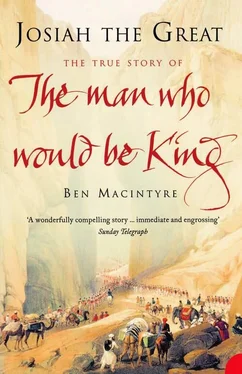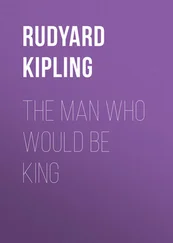My ties and ballasts leave me, my elbows rest in sea-gaps,
I skirt sierras, my palms cover continents,
I am afoot with my vision.
Intrepid Americans were moving west in their thousands; young Harlan, however, shed the ballast of his childhood and headed east.
Josiah’s wanderlust, and his growing interest in medicine, can be traced to the influence of his brother Richard. Three years older than Josiah, Richard had entered the medical department of the University of Pennsylvania, and then travelled to Calcutta as a surgeon on an East India Company ship in 1816. After a year at sea he had returned to complete his medical degree, bringing back tales of his voyage and the sights and sounds of India. In the spring of 1820 Joshua Harlan arranged a job for Josiah as ‘supercargo’, the officer in charge of sales, on a merchant ship bound for Calcutta and Canton.
Before setting sail for the East, Josiah joined the secret fraternal order of Freemasons. Quite when or why he came to take the oath is unclear, but there was much in Freemasonry to attract a man of Harlan’s temperament: the emphasis on history (Freemasonry traces its origins to the stonemasons who built Solomon’s Temple), on masculine self-sufficiency and the exploration of ethical and philosophical issues. America’s Masonic lodges tended to draw freethinkers and rationalists, men of politics and action: a third of the signatories of the Declaration of Independence, including George Washington and Benjamin Franklin, had been Masons. Joined by high ideals and a shared fealty to the lodge, Freemasons were expected to demonstrate the utmost tolerance while following a moral system clothed in ritual with allegorical symbols adopted from Christianity, the Crusaders of the Middle Ages and Islam. Like Rudyard Kipling, who would also join the organisation as a young man, Harlan ‘appreciated Freemasonry for its sense of brotherhood and its egalitarian attitude to diverse faiths and classes’.
Harlan seldom discussed his religious beliefs, but his Quaker upbringing moulded him for life. Founded in England in the seventeenth century, the Quaker movement had taken deep root in America, with a credo that set its adherents apart from other Christians. Quakers – a name originally intended as an insult because they ‘tremble at the word of God’ – worship without paid priests or dogma, believing that God, or the Inner Light, is in everyone. All of human life is sacred. ‘Therefore we cannot learn war anymore,’ declares the Quaker testimony. ‘The Spirit of Christ which leads us into all truth will never move us to fight and war against any man with outward weapons, neither for the Kingdom of Christ nor for the kingdoms of this world.’ Harlan was brought up in a spirit of religious egalitarianism: men and women were granted equal authority in meetings, Quakers declined to doff their hats to those of higher status, and as early as 1774 the Society of Friends prohibited Quakers from owning slaves. Quaker mysticism was directed towards social and political improvement rather than dry theological speculation. In the course of his life Harlan would move away from some Quaker tenets, most notably the prohibition on war, but the religion remained central to his character and beliefs, revealing itself in a hardy independence of thought, belief in sexual equality, deep-rooted opposition to slavery and a marked disinclination to bow and scrape to those who considered themselves his superiors.
Harlan’s journey to the East would last thirteen months, taking him to China, India and then, with a full cargo of Eastern merchandise, back to Philadelphia. Enchanted by his first adventure on the high seas, he was preparing to set sail again in the summer of 1821 when he accidentally fell in love.
Harlan never mentioned the name of his first love, whose memory he carried with him for the rest of his life. He refers to her obliquely in his writings, but he was too much of a gentleman ever to divulge her identity. Yet he bequeathed a clue. Among the handful of documents he left behind, sandwiched between a miniature watercolour and a recipe for Albany cakes, is a floral love poem in his own handwriting, entitled ‘Acrostick in explanation of the lines addressed to Miss Eliza S. on presenting a bouquet’.
Each quickening pulse in Coreopsis speaks
Lo at first sight my love for thee was mov’d
Iris love’s messenger salutes those cheeks –
Zephyrs! sweetly breathe where Alfers lov’d
Althea says with passion I’m consumed
Be wreathed the moss rose bud and locust leaves
Emblem of love confess’d beyond the tomb –
Thy Captive made, Peach blossoms fernèd leaves
Heliotropes blue violet and Tulip red
Secure devotion love its declaration –
Whilst ecstasy from fragrant Jess’mine’s bred –
Ambrosia means love’s acceptation
In Verbena, Daisy red, Cowslip and Mignonette
Must sense and beauty, grace, divinity set.
From Marigold – that’s cruelty! – abstain
And Rose, fair lady, for it means disdain!
This style of love poetry is now, mercifully, long out of fashion, but Harlan’s horticultural verse was the product of some expert pruning: reading the first letter of the first fourteen lines reveals the name ELIZABETH SWAIM.
The Swaims were a large, well-to-do Philadelphia clan of Dutch origin. Early in 1822 Josiah Harlan and Elizabeth Swaim were engaged, although no formal announcement was made. Harlan again set sail for Canton, telling his fiancée that they would be married when he returned home the following spring.
Eliza Swaim seems to have had second thoughts from the moment the ship left port, but for months, as Harlan slowly sailed east, he remained unaware that she had jilted him. Not until Richard’s letter caught up with him in Calcutta did he discover that Eliza had not only broken off their engagement, but was now married. A decade later, Harlan was still angrily denouncing the woman who had ‘played him false’. When Joseph Wolff, an itinerant missionary, met him for the first time in 1832, Harlan unburdened himself: ‘He fell in love with a young lady who promised to marry him,’ Wolff noted in his journal. ‘He sailed again to Calcutta; but hearing that his betrothed lady had married someone else, he determined never again to return to America.’ He would stick to his vow for nearly two decades. But he would keep the love poem to ‘Eliza S.’ until he died, alongside a second floral poem, written after he had received the devastating news, as bitter as the first was adoring.
How sweet that rose, in form how fair
And how its fragrance scents the air
With dew o’erspread as early morn
I grasped it, but I grasped a thorn.
How strange thought I so fair a flower,
Fit ornament for Lady’s bower,
Emblem of love in beauty’s form,
Should in its breast conceal a thorn.
Harlan embraced his own loneliness. Henceforth, the word ‘solitude’ appears often in his writings. He had reached out and grasped a thorn; he would never clasp love in the same way again. The broken engagement was a moment of defining pain for Josiah, but Elizabeth Swaim had also set him free. Cutting himself off from home and family, determined never to return, he now plunged off in search of a different sort of romance, seeking adventure, excitement and fortune, caring nothing for his own safety or comfort.
Emotionally cast adrift in Calcutta, Harlan learned that the British were preparing to go to war against Burma and needed medical officers for the campaign. The jungles of Burma seemed an adequate distance from Pennsylvania, and so, following his brother’s example, Harlan signed up as a surgeon with the East India Company. That he did so in order to escape the mortifying memory of Eliza Swaim is apparent from a reference in his unpublished manuscript. ‘Gazing through a long window of twenty years’, he wondered what would have happened ‘if, in place of entering the service for the Burma War in the year 1824, I had then relinquished the truant disposition of erratic motives and taken a congenial position in the midst of my native community and quietly fallen into the systematic routine of ordinary life – if I had sailed for Philadelphia instead of Rangoon or had I listened to the dictates of prudence, which accorded with the calculations of modest and unambitious views, and not a personal incident that occurred during my absence from home’. This ‘personal incident’ would lead Harlan into a life worthy of fiction – which in time it would become. From now on he began to fashion his self-plotted saga, acutely aware of his role as the protagonist, narrator and author of his own story. ‘It is from amongst such incidents and in such a life that novelists have sought for subject matter,’ he wrote. ‘In those regions, which are to me the land of realities, have the lovers of romance delighted to wander and repose and dream of fictions less strange than realizations of the undaunted and energetic enterprise of reckless youth.’
Читать дальше












